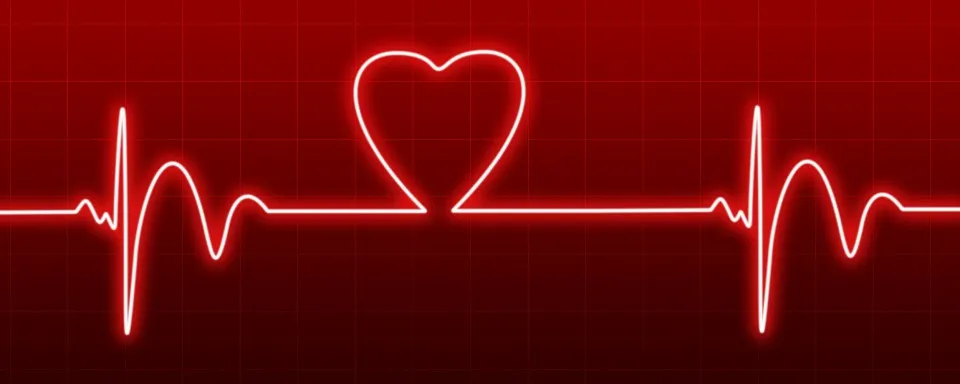We know that a human's average lifespan is approximately 72 years, globally speaking. That's mostly because of our technological and cultural evolution bringing us many health-related advancements like better hygiene and medicine. However, back in the early 1800s, before the most recent agricultural and technological revolutions our species' life expectancy was about the same as nearly every other mammal on the planet...

source: Pixabay
You're forgiven if incredulity is the immediate reaction to this article's introduction; humans live longer than mice, now and in the past. That's true if we use time to measure the length of life, which is what we do, for time is our most precious commodity. But what if we measured our lifespan in heartbeats? Well, that's not a too difficult question to answer: just measure the average number of heartbeats per minute and multiply that by the number of minutes in 72 years. I'm too lazy to do that calculation myself, so I'll just repeat what I've heard from several scientists: the average modern human lives for approximately 2 to 3 billion heartbeats.
This is not a very profound statement by itself, other than it perhaps puts a little bit in perspective how short our lives are; three billion is a big number, but not unimaginably big, and heartbeats go by all the time. How many heartbeats have you spent since you started reading this post? The positive news is of course that we've managed, on average, to double the number of heartbeats since the early 1800s, and almost tripled that number since we started walking upright and using our brains.
The really astonishing thing is this: scientists have discovered that this is true for all mammals! We used to live, on average, for 1 to 1.5 billion heartbeats, and so does every other mammal on earth! The lifespan of mammals is proportional to their size and their mass: tiny mice live relatively short lives as compared to huge elephants and whales. But they all live for 1 billion heartbeats on average. Therefore mice have very fast beating hearts, and whales' hearts beat very slow; the life-pace of large mammals is very much slower than that of small mammals. Only because of our scientific, technological and cultural advances, we are the only mammal that gets 2 to 3 billion heartbeats...
What makes this correlation even more astonishing is that not only heartbeats, but a lot of properties are paced according to the animals mass, like metabolism, reproduction rates, muscular movement... That's why they say that the entire life-pace is much faster with small mammals. This got me thinking: where did I hear that before? Where else do we see the link between mass and the slowing of pace..?
You might already suspect where I'm going with this. In Einstein's theory of general relativity, mass curves spacetime, and by doing that it slows time too! Here's a quote from an article with the title "Here's why astronauts age slower than the rest of us here on Earth":
... time appears to move slower near massive objects because the object's gravitational force bends space-time. The phenomenon is called "gravitational time dilation." In a nutshell it just means time moves slower as gravity increases. That's why time passes slower for objects closer to the center of the Earth where the gravity is stronger.
source: Business Insider
Are we witnessing some profound correlation between physics and biology here? I mean if mass and lifespan are related in the same way as mass and spacetime... Could that mean that gravity is the tendency of everything in the universe to want to be where time goes slow? Does everything that's alive naturally gravitate to a place where life lasts as long as possible?
I really don't know: maybe I'm letting my imagination get the best of me. It's just a sudden realization I had when listening to a podcast about those heartbeats. At any rate, I'm increasingly astonished about these little facts of life that seem to make us part of something far greater than our own three billion heartbeats. Unless my heart stops beating between now and then, I'll be back in approximately 115,200 heartbeats, I hope you'll join me again. Until then, watch the below linked video on the correlation between heartbeats and life expectancy, and stay healthy!
How Many Heartbeats Do We Get?
Thanks so much for visiting my blog and reading my posts dear reader, I appreciate that a lot :-) If you like my content, please consider leaving a comment, upvote or resteem. I'll be back here tomorrow and sincerely hope you'll join me. Until then, keep safe, keep healthy!

Recent articles you might be interested in:
| Latest article >>>>>>>>>>> | Endgame |
|---|---|
| Bitcoin Initiation | Falling Empire |
| Trickle Down Genetics | Special Drawing Rights |
| Kinder Capitalism? | Big Data Terror |

Thanks for stopping by and reading. If you really liked this content, if you disagree (or if you do agree), please leave a comment. Of course, upvotes, follows, resteems are all greatly appreciated, but nothing brings me and you more growth than sharing our ideas.
